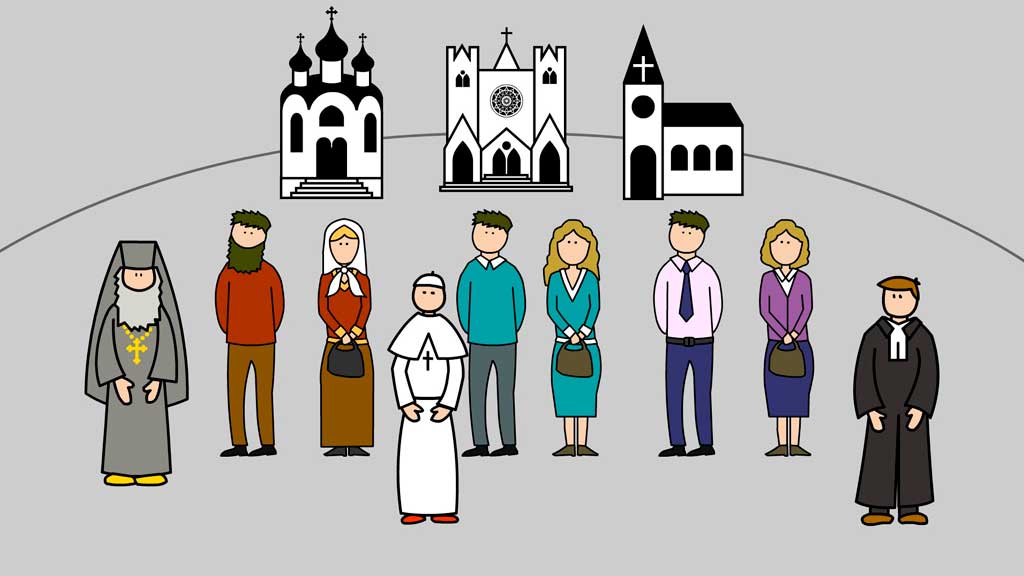According to skeptics, the writers of Kings and Chronicles were contradictory in their recording of where King Josiah died. Popular skeptic Steve Wells lists 2 Kings 23:29-30 and 2 Chronicles 35:23-24 as #253 in his list of “contradictions” in the Bible,1 while the website 1001biblecontradictions.com cataloged these verses as “contradiction” #250.2 The late skeptic Dennis McKinsey highlighted these verses in one of the early issues of his journal Biblical Errancy, claiming they represented one of the “simple, straight-forward problems” of the Bible.3 So what, exactly, do these verses say?
According to 2 Kings 23:29-30:
On the other hand, 2 Chronicles 35:23-24 reads:
Is there actually a contradiction between these passages, or is there merely an unfair desire for them to contradict without real proof of such discrepancy? As is the case with most allegations of biblical inconsistencies, once again skeptics assume (1) the worst, and (2) much more than they can ever prove.
The two accounts of the death of Josiah are not contradictory but supplementary. Just as reading multiple reports of a current news event should give the reader a more robust view of things, reading both accounts of Josiah’s death gives us a fuller picture, not a discrepant one. Though Pharaoh Necho had no quarrels (at least on this occasion) with Josiah and his army (2 Chronicles 35:20-21), nevertheless Josiah ignored “the words of Necho from the mouth of God” (2 Chronicles 35:22). The King of Judah foolishly “disguised himself” and went “to fight in the Valley of Megiddo” (2 Chronicles 35:22), where Pharaoh Necho “killed him” (2 Kings 23:29). The chronicler details that it was the archers (under Pharaoh’s authority) who shot Josiah (35:23). This difference is not one generally highlighted by skeptics as a contradiction between the two accounts. Most fair-minded people understand that a “king,” “president,” or some other ruler may be said to “do something” when, in actuality, he gave the command for it to be done. That is, it was done under his authority and thus (in one legitimate sense) “by him.” If skeptics can seemingly concede the sensibleness in this difference between Kings and Chronicles, one wonders why they will not also consider possible, rational explanations for other differences by two different, independent writers of two different historical accounts?
Could it be that the phrase in 2 Kings 23:29 that “Pharaoh Necho killed him at Megiddo” means nothing more than it was at Megiddo that King Josiah received his mortal blow, but that his heart actually stopped beating somewhere else, sometime later? Suppose a man is shot on Main Street but is not pronounced dead until he’s in an ambulance, halfway to the hospital. Can one not truthfully say (in one sense) that the man was killed on Main Street—that he received his “dying blow” there, though his brain activity did not technically stop until he was in the ambulance or perhaps at the hospital? Surely to ask is to answer. Admittedly, a few translations word 2 Kings 23:30 as Josiah being “carried…in a chariot dead (meeth) from Megiddo” (KJV), but, as John Haley noted many years ago, the Hebrew term meeth can mean “dying or in a dying state.”
Furthermore, simply because the chronicler noted “[s]o he [Josiah] died” after he mentioned that Josiah’s servants “brought him to Jerusalem” (2 Chronicles 35:24) is not proof that Josiah actually died in Jerusalem. As E.M. Zerr observed in his Bible Commentary: “The statement and he died…is just a common form of expression in the Bible, where the several facts of a circumstance may be named with very little regard for their chronological order.” Indeed, the chronicler is merely stating the fact that Josiah died and not exactly when he died. As we have noted in other articles, Bible writers often recorded their material topically or climactically, and not necessarily chronologically. We should no more assume the chronicler was writing strictly sequentially in 2 Chronicles 35:24 than we should when we ask our spouse to tell us how his or her day went. (What reasonable person would criticize others for not telling various events in chronological order if that was not their stated intention?)
The fact that Dennis McKinsey thought so much of the question regarding where Josiah died, even contending it is one of the “simple, straight-forward problems” of the Bible, should be an indication of just how weak his case (and others’) is against the Bible. Scripture reveals that Josiah died after receiving his “death blow” in battle at Megiddo. Precisely when and where he took his final breath, we do not know, nor do we have to know to exonerate the Bible writers of any proven error in their penning of Scripture.
Endnotes
- Steve Wells (2013), The Skeptics Annotated Bible (SAB Books), p. 1614. See also pp. 548,642.
- “1001 Contradictions & Discrepancies in the Christians Bible” (2014), #250, http://www.1001biblecontradictions.com/I3d%20-%20HOJ%20%5B234-258%5D.html.
- Dennis McKinsey (1983), “Issue No. 5,” Biblical Errancy, May, p. 29.
- John Haley (1977 reprint), Alleged Discrepancies of the Bible (Grand Rapids, MI: Baker), p. 376.
- E.M. Zerr (1954), Bible Commentary (Bowling Green, KY: Guardian of Truth Publications), pp. 279-278, emp. in orig.
- Eric Lyons (2005), “Alleged Chronological Contradictions,” https://apologeticspress.org/apcontent.aspx?category=6&article=1582. See also Eric Lyons (2004), “In What Order Did Satan Tempt Jesus?” https://www.apologeticspress.org/APContent.aspx?category=23&article=746.
Keep Reading
The SIN of Denominationalism
Why Denominationalism is wrong and condemned in the Bible ...
Speaking in Tongues
Pentecostal practices of speaking in tongues ...
Now That I am a Christian
I AM A MEMBER OF A GREAT COMPANY, OR BROTHERHOOD - "The general assembly and church of the firstborn ...
The Christian Youth In Effective Communication And Relationship Management
The essence of communication in managing relationships. ...
Have A Question?
Do you need clarifications on what true Christianity is all about or you have a topical question that bothers you? You can talk to us about it now.




